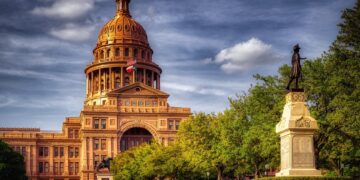We’ll also go into these socialist ties to centralized Banks something many people may be wondering and what are centralized Banks what are the concerns with them we’ll discuss all of this and More in today’s episode uh that said first let’s jump into what’s happening in Argentina now the new president there
Javier Malay is making true on his promise to close the country’s centralized Bank the move was being criticized as just a rumor but he then took to ex where he clarified that shutting down the central bank is a non-negotiable matter this is his official statement on that if you’re
Wondering now the Buenos ays heral said this one of the local newspapers there it said the closure of the Central Bank remains non-negotiable part of Javier mala’s economic plan the president elect team said via a press statement on Friday it says the release added that they were confirming malle’s commitment
To his proposal of eliminating the country’s main banking Authority in order to shut down what they called false rumors now in another video Malay called the central bank one of the greatest thieves of all time and I’ll be discussing a bit of what this means and
You know is that actually true well look many people have pointed out the problems of centralized banking this goes back to the founding fathers in fact you know centralized banks are not necessarily new Thomas Jefferson was criticizing the bank of England as were many others the founding fathers of the
United States were deeply opposed to the bank of England and they wanted to prevent a scenario like what was happening in Europe at the time where people were becoming slaves to Bank debt now I’m not exaggerating when I say slaves how do we Define a slave a slave
Is a person who works but they are not entitled to the wealth they generate and so how does banking tie into that well when you go into debt you become a slave to the holder of the debt this is a old principle not necessarily new not even necessarily related to Banks the debtor
Is beholden to the the person who they owe it to that’s the nature of it and if you engage in some of the predatory practices Banks practice at least modern Banks I’ll explain the differences with some of this well what happens is that you have things like you know graduating
Interest r rates you have issues like fiat currency you have many other traps I would call them that are established to lure you into debts that you can’t really pay off what does that mean it means that indefinitely sometimes you will be working and a section of your
Pay a portion of your pay is going to be taken by the Banks because you’ve fallen into a a debt trap essentially now these debates historically have continued to this day and again there’s other problems centralized Banks we to get into as well there are a lot of debates
Around banks in general I should say but with centralized banking because you know we could we could go a lot into banking itself and there are some positives and negatives to it but with centralized banking one of the big concerns is that essentially what it is
Is a bank that is not allowed to fail and this is important the prospect of failure for a bank means that they can’t take too much of people’s money for risky Investments it means they can’t abuse people with loans that people can never technically pay off if people just
One day say hey I’m not going to pay the bank what happens if enough people do that the bank goes out of business meaning the banks need to to an extent make sure that they’re doing things in a way that are at least manageable and of course if banks
Normally the way they work is you you give them let’s say $100 and under normal circumstances they might take you know maybe 50 or $70 of that depending on how depending on how daring they’re feeling they’ll take a portion of that money and they’ll invest it it’s through this method that Banks
Typically do at least historically play some positive role in terms of helping the development of larger businesses in the country although there’s other problems with that such as for example financing Wars and so on the issue you have though is that if the bank takes too much of people’s money
And let’s say they take 90% of people’s money and then the person shows up and say Hey where’s my $100 and like well bad news buddy only $10 of that $100 is left but good news if you just wait a while we’ll hopefully make it back in
Investment you know you have a scenario like that which the banks are typically concerned about this is why runs on the banks are problematic if everybody suddenly wants their money back the reality suddenly Dawns that Banks don’t have your money they’ve invested your money and the other issue you have is
That with centralized Banks essentially what has happened is with a bank that can’t fail it lets them increasingly make risky Investments to the point where with for example the Federal Reserve and things like that because it bails out Banks uh it makes it so that Banks can make very very risky
Investments things that are maybe they’ll you know invest 99% of your money sometimes even more in fact because they can write debt as if it were as if they actually held something now the issue then is if banks hold if they lose too much money if they don’t
Get their money back again they’re going to fail this ties into the dangers of fiat currency and unlimited spending now one of the key problems with things like the Federal Reserve you know aside from printing fiat currency essentially fake money right phony phony money which allows them to keep printing money and
Inflating the currency by the way is that the FED can bail out failing Banks meaning again as I just discussed when you have a central bank like the Federal Reserve and you’ve given it additional Powers aside from the normal powers that again Central Bank might have you give the Federal
Reserve the ability to take people’s money essentially through the through the medium of inflation which I’ll explain and use part of that to give Banks money to bail them out to make sure they cannot fail this is why for example in 2008 with the banking crisis what happened we bailed out the banks
Even during the recent crisis we bailed out many banks you you might remember there was a several several smaller banks in the US that of course went belly up the big Banks were Saed the smaller ones lost too much consumer confidence or they would have been
Bailed out just fine as well but lo and behold that’s what happened and there also the problem of giving the government Limitless access to cash which they can create by stealing wealth from the population through inflation now I briefly discussed the problem with inflation how does that work the nature
Of fiat currency is that it’s a essentially a paper bill that represents a certain value it’s an IOU essentially and when you go to the bank and let’s say you give them your you know $10 worth of gold let’s use that as an ex as a hypothetical you give them $10 worth of
Gold and they give you a certificate that says $10 and you’re like okay this $10 will forever be able to buy that piece of gold right back because it’s worth the same amount this is the way the public often interprets this but that’s not how the banks look at it what
The banks do you give them that piece of gold worth $10 probably a very small piece by the way and the bank rather than let’s say trying to increase its wealth will merely print more of those bills that represent a set currency now rather than you having let’s say a bill
That represents the value of that $10 in Gold they’ll print two meaning that they’ve given the public two bills now meaning the bill you have in your pocket the actual value has been cut in half that’s inflation and when they print four well that means that it’s been cut
In four pieces and then eight cut in eight pieces and then a 100 cut in 100 pieces where your $10 is worth you know 10 cents or whatever they continue doing this and it’s through this way that Banks reduce the actual value of money that is what inflation is and of course
That brings up other problems as well which is essentially unlimited spending Banks can continue printing money which allows them to continue creating wealth for themselves artificially which they can then use to essentially allow governments to have unlimited spending on anything they want including Wars by the way Mis Institute had an its
Interesting piece explaining some of this noting the Federal Reserve in particular it said this abolishing the FED meaning the Federal Reserve in the US would put put a huge break on the planning State you know social planning without the ability to expand the money supply at will the federal government
Would become about as threatening as a state or local government that’s only the beginning of what the end of the FED would mean it would dramatically change the political culture in this country bureaucracies would tumble trade would stabilize the investment risk calculus would Accord with the free market
The state is always and everywhere a danger and even when it has no Monopoly on money and no printing press that can create money tickets at will but a state with the ability to make its own money is a grave and Relentless threat to prosperity and freedom at least
According to the misus Institute which represents um which represents more of a Libertarian form of of Economics of course you know this is where you get into uh some of the arguments I believe that the Argentinian president Malay is bringing up he’s very openly a Liber a Libertarian and it’s very likely he’s
Going on the same concept because when he discusses the problems of centralized banking at least where he’s at he’s talking about Government powers he’s talking about the you know expansion of the state he’s talking about trying to stabilize the markets in favor of the average person rather than powerful
Elites who claim to rep present the average person but typically don’t these are some of the issues he’s campaigning on and if you eliminate this kind of theft notably through centralized Banks because as I mentioned he described centralized banking as one of the greatest forms of threat a you commonly
Held by a lot of Libertarians I would agree with it as well actually he’s arguing of course that if you eliminate that loophole within the financial system that allows a limitless creation of artificial currency at the cost of essentially stealing it from people’s pockets without them realizing it because you’re essentially giving them
Again a ticket that represents a value you’re holding and you just print more tickets you create essentially more wealth for yourself but the actual value being held has maintained pretty much the same actual value by doing this again you rob people and about every 10 years inflation doubles it’s actually much worse right
Now in the US but theay also talks about the problems of socialism and the problems again of the burgeoning state of this massive bureaucracy that builds up and many people who would agree with this type of Economics would point to the powers of the central banks as being
One of the key problems with this here’s mises Institute in a letter from Ron Paul it says again a Libertarian right it says this further in economic Elites benefit when the Federal Reserve pumps new money into the the economy because they have access to the money created before there are widespread price
Increases artificially low interest rates because the FED can control interest rates also facilitate the growth of the weal the welfare Warfare State as I mentioned a lot of War spending massive spending is only made possible because of centralized banking it notes he notes that the Federal Reserves inflationary policies again
When you’re printing money reduce stealing money from people’s pockets without them realizing it essentially that the inflationary policies harm the average American by eroding the Dollar’s purchasing power this forces consumers to rely on credit cards and other forms of debt to maintain their standards of living many Americans are unable to
Afford their own homes because they’ve been saddled with student debt that can even exceed their income now he notes that since the bailouts of 2008 there’s been a growing understanding that the current system notably the economic system is rigged in favor of the elites and against the average American now sound familiar this
Is what Malay is also saying in Argentina but he continues saying this Ron Paul he says unfortunately popular confusion of our system of kenian neoliberalism again Kian economics which is what is adopted by many leftist countries with a free market economy combined with a widespread entitlement mentality has
Led many Americans to support increasing government control of our economy the key to beating back the rising support for socialism on both the left and the right is helping more people now he notes that the key to beating back the rising support for socialism both the left and right is helping more
People understand that big government and Central Banking are the cause of their problems and that free markets in all areas and especially in money are the solution now this sounds strange it’s because when people criticize capitalism and so on often times they’re not criticizing actual capitalism they’re criticizing crony capitalism
Which is something entirely different they’re criticizing the interventionist policies that have damaged the actual free market and when people criticize you know student loans loans and unaffordable health care and unaffordable houses look no further it’s state interventionism in the hand of that oftentimes causing the spike in
Prices because the way the market Works under normal circumstances is that when people can’t afford something it goes out of business if people can’t afford houses they can’t sell the houses if people can’t afford health care the you know the hospitals go out of business and of course the
Normal way they avoid that is by lowering prices to meet what people can actually pay and of course there’s different tiers and the quality of it depending on what you can pay or can’t pay but typically you will have people engaged in the free market looking to provide products and services and
Various forms of care to people at all economic levels you know with medicine for example most doctors were not about business it was about the hypocritic oath an oath you took to save lives I would say the medical system system is broken because of the abandonment of the
The hypocritic oath and I would blame part of that a large part on interventionist policies which through regulation and constant legal threats made it very difficult for doctors to do business without significant risks or costs to themselves now it’s important as Ron Paul notes that the Liberty
Movement put pressure on Congress to cut spending and reign in or better yet and the FED because he’s arguing as is Malay that Central Banking is one of the core problems in many of these areas where we see Rising costs unaffordable basic ways of living and as we see essentially a
System get taken away from us and sold back to us or rented back to us essentially on debt now on the issue of socialism as well Malay in Argentina has been explaining how it is the biggest problem that Argentina faces and he explained how this issue ties into
Problems with the system behind big government overall let me play you this and we’ll talk a bit more now after making these statements Malle goes on to describe politicians as being the key problem in this uh he does seem to be more on the kind of far end of Li
Libertarianism I think he’s he actually had a video where you showed the U the anarcho the anarcho capitalist flag which is of of course the idea of just eliminating government almost entirely and letting the markets essentially regulate the systems but he ties it into the issue he ties it into the issues with
Union leaders politicians central banks and the broader issue that people look to big government to solve their problems when big government is instead the cause of many problems in the first place now personally I would say you need some government I think you do need a military I think you need BAS basic
Forms of Justice I do think you need police and courts and I do think you need some basic you know forms of government to maintain the system generally speaking I don’t believe in you know full-blown anarcho capitalism but Malay of course is going on this and of course I would argue that many
Countries can go on this because America essentially provides the system of international stability that many of them need and of course if you look at malle’s policies he’s not becoming an anarchist he’s actually appointing people who are even relatively moderate in some regards and so he’s not looking
To abolish everything but what he is talking about is abolishing the fat on government and abolishing the systems that allow for corruption notably and by getting rid of things like for example the let’s say systems that allow for crony capitalism among politicians central banks union leaders and many
Other things he’s looking to eliminate the financial incentives and forms of corrup coruption that allow for crony capitalism take to take root in societies now that being said let me give you an example of how some of this might play out here you have another story on Bankers wanting legal immunity
So they can push the ESG agenda case in point as Malay is noting as many others have noted that protections for banks is what is allowing a lot of these agendas to take place in the first place because again you know ESG is not profitable environmental and social governance
Doesn’t necessarily make money they wouldn’t need to essentially you know create a racket where they threaten people with financial harm or damage to your brand if you refuse to go along with their policies these strong arm tactics are things that go against the nature of the free market if the public
You and I decide that we don’t want to buy something it’s going to go out of business we don’t change them essentially through threatening them we change them through just deciding we don’t want to put our money there now of course some people would argue with it
With ESG because they give scores to different companies but that in itself is informing the markets of let’s say the policies of that company and by doing so allow people to decide whe whether or not they want to spend their money on it that’s not really fully
Accurate the way that ESG works is it creates a s stigma on a company based on many different criteria which may or may or may not actually reflect tangibly what the surface label entails ESG environmental and social governance which is why for example you can have big oil companies with very good ESG
Scores but you have guys like Elon Musk who runs like Twitter and you know Tesla a literal electric car company having very bad ESG scores not because they’re going against you know Environmental policies but because they he’s getting labeled at least in his case for what appear to be political reasons and so
What you have then is this Union forming not just at the Civic level but also at the government level where governments essentially are working hand inand with investors and bankers and of course big businesses in order to enact social policies that go against the Civic
Society you and I and you and I making choices and where we where we put our money let me show you what Bloomberg had to say about this new ESG push it says this Bankers servicing one of the world’s biggest ESG debt markets are now actively seeking legal protections to
Guard against the potential greenwashing allegations that may be ahead essentially what they want is legal immunity in order to do something that was debatably legal something that may in fact break the law and they want the government to protect them while they break the law essentially now let me
Show you this Economic Times of India says a bit more in it it says Greg Brown a London based partner in Allen and ‘s U ‘s banking practices said that he’s seen a surge in clients asking for new legal Clauses in the SL documentation and it notes that such add-ons are designed to
Let lenders strip these sustainability claims from a loan so-called declassification provisions mean that Bankers can just book what had been an sssl as a normal loan should they subsequently realize the product doesn’t actually Merit an environmental social or governance label in other words they’re gaming the label they’re gaming
The system they’re doing things that don’t meet the criteria the public and even investors are being told it represents and merely what they’re doing instead using that label gaming the system and getting the good ESG scores in order to get money while not actually representing what the public has been
Led to believe it means now again this is Being Framed as a request for legal immunity as a as a form of greenwashing and what is that it’s when you make false or misleading statements about environmental benefits in order to push a product or practice it’s like the
Snake oil salesman you had back in the day they’re lying to you to get your money it’s a way of deceiving investors though not necessarily people buying in the actual store fronts or markets folks like you and I Investopedia describes it like this it says that greenwashing is
The process of conveying a false impression or misleading information about how a company’s products are environmentally sound green Wasing invokes involves making an unsubstantiated claim to deceive consumer consumers into believing that a company’s products are environmentally friendly or have a greater positive environmental impact than they actually
Do although in this case again it relates not to Consumers necessarily but instead to investors and to Banks and again this ties into the bigger picture what we’re going at here which is that essentially what you have is an internal little network of individuals gaming the system at the cost of the average
Citizen and when you have guys like again now the president elect in Argentina noting how centralized banking fits into the ecosystem a big government this is what I believe he’s actually referring to that said that’s it for YouTube Twitter and Facebook for the rest of the episode come join me on Epic
TV EPO tv.com I’ll be talking about China’s Shadow banking sector which is now going belly up alongside many other things and also folks I want to hear your thoughts on Central Banking do you think it’s good or bad email me your thoughts Crossroads epic times.com Crossroads ATO tes.com and
Again send your thoughts with the new on the new tinan president’s plan to close the central banks I just talked about and again this uh email is a new dialogue we’re starting on Crossroads I want to hear your thoughts on issues as well so again send me an email cross
Crossroads epic times.com now that says jump over to Epic TV we’ll talk about one more story then we’ll jump into questions from the audience the link to that is in the description below this video thank you all again and I will see you on Epic TV

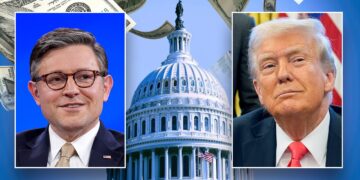
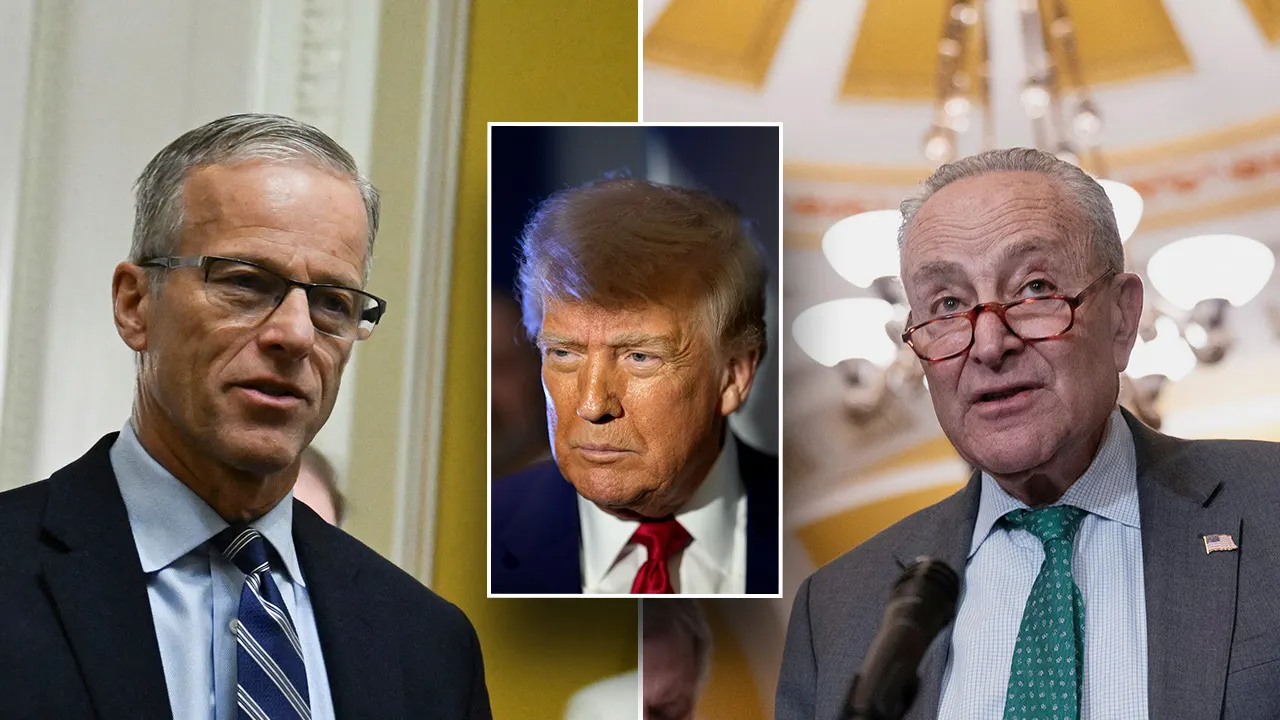
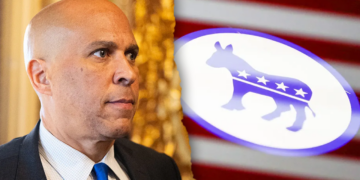

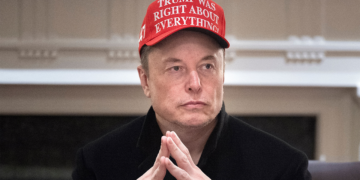
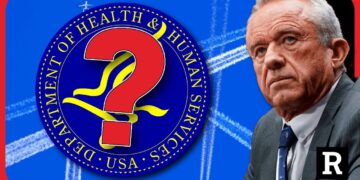
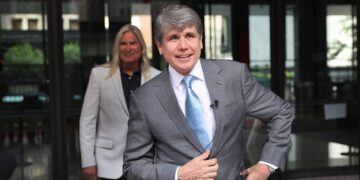
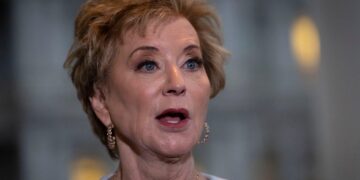

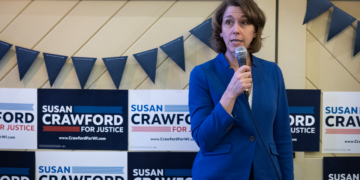






















 Reaction & Commentary
Reaction & Commentary





